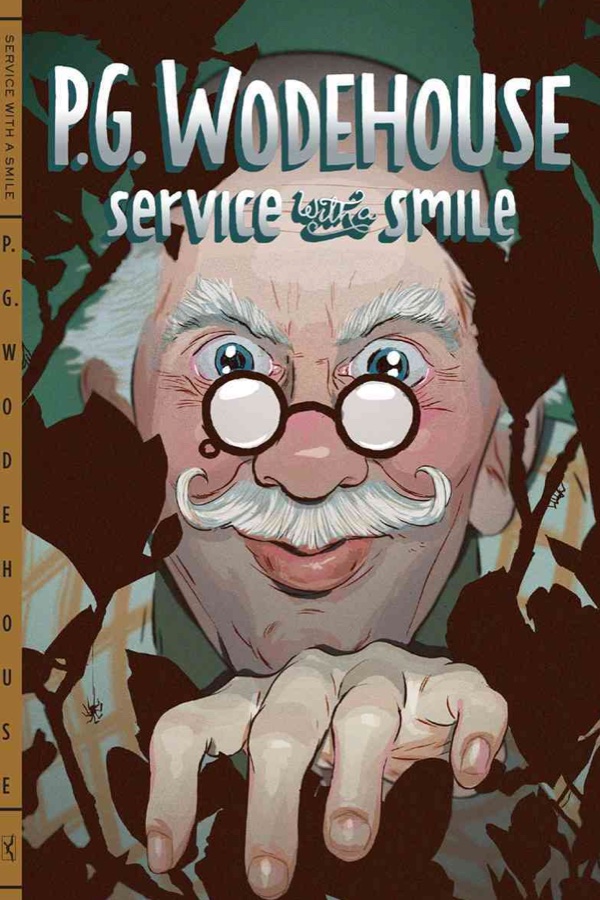The Duke of Dunstable, a guest at Blandings Castle, wants to steal the Empress, the prize-winning pig of his host, the Earl of Emsworth. Lavender Briggs, the Earl’s secretary, will assist the Duke in order to get money for a typewriting business. Cuthbert Merriwether, another guest, will assist Briggs, or else she will inform Lady Constance, the Earl’s sister and de facto ruler of Blandings, that he is in reality the Reverend Cuthbert Bailey and staying under an assumed name to be near the girl he loves, Myra Schoonmaker, who is at Blandings because Lady Constance promised Myra’s father, the American tycoon, James Schoonmaker, that she would watch over Myra while in England. Add to this the fact that Myra, who really does love the Reverend, is engaged to Alaric, the Duke’s nephew, and that the Church lads are camping at Blandings, causing the Empress to be off her feed, and that the Earl’s grandson, George, is sticking his nose into everybody’s business. Who can straighten out this mess? Enter Frederick Altamont Cornwallis Twistleton, fifth Earl of Ickenham, a.k.a, “Uncle Fred,” who “in the late afternoon of life retained, together with a juvenile waistline, the bright enthusiasm and fresh, unspoiled outlook of a slightly inebriated undergraduate,” and whose aim in life is to spread sweetness and light, or as he otherwise puts it, “service with a smile.”
P. G. Wodehouse (1881 – 1975), wrote some 90 novels, of which the most famous are the Jeeves and Wooster stories. They are all top-notch British farce, with not a page lacking in a chuckle and most having a good belly laugh.
So what is the point of reading them? Why should men at The Heights, a serious academic institution, bother with them? The point is, there is no point, and we’ve all grown far too serious. There is nothing so sad about our modern culture as its sadness. Gone are the days of “The Carol Burnett Show” and “The Honeymooners” when we could laugh at ourselves. Today’s humor seems to be a rapidly declining competition of “how low can you go.”
St. Philip Neri, the patron saint of cheerfulness, whose constant companions were a copy of the gospels and a book of jokes, said, “A joyful spirit attains to perfection more quickly than any other.” St. Teresa of Avila said, “May God protect me from gloomy saints.” Teenagers today, caught in a quagmire of PCism, complexes and syndromes, are especially in need of a good, clean laugh. And adults, who see the floodwaters rising all too fast, also need to keep a smile on our faces. P. G. Wodehouse does this by the page, with the added benefit of being a brilliant writer.
Some morsels:
There is something, if not sanctifying, then at least salutary in the pleasure Wodehouse provides. As Samuel Johnson put it, “Harmless pleasure is the highest praise. Pleasure is a word of dubious import; pleasure is in general dangerous, and pernicious to virtue; to be able therefore to furnish pleasure that is harmless, pleasure pure and unalloyed, is as great a power as man can possess.” And Wodehouse always delivers.
“Lord Emsworth appeared, walking across the meadow in that jerky way of his which always reminded his friends and admirers of a mechanical toy which had been insufficiently wound up.” “A momentary picture rose before her eyes of herself, armed with a stout umbrella, taking a full backswing and breaking it over her employer’s head. Even though she recognized this as but an idle dream, it comforted her a little.”
There are no questions for this: just read and enjoy. I would encourage readers to keep a pencil handy to underline favorite passages. You’ll be busy, but you’ll never be at a loss for the mot juste.



